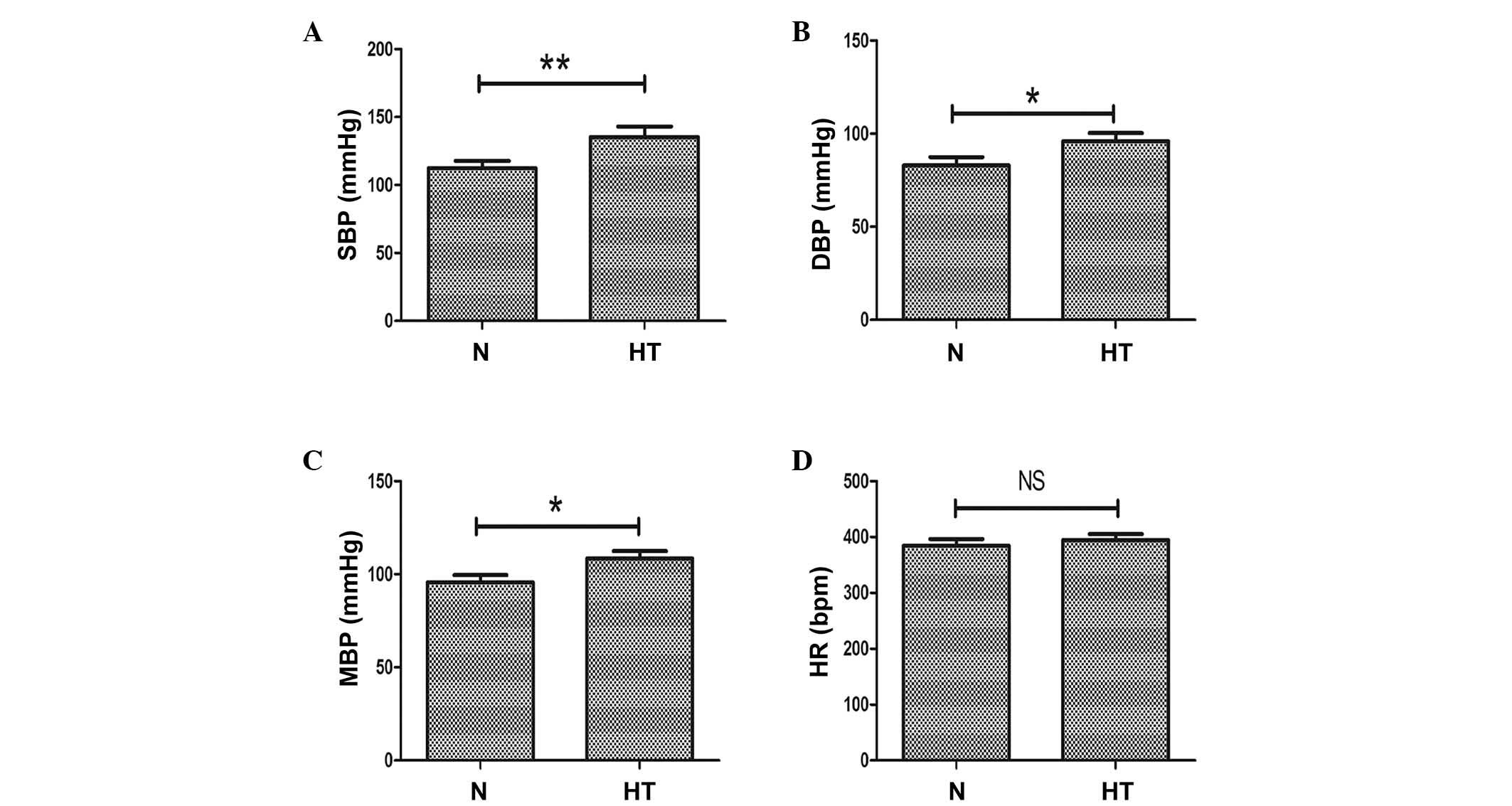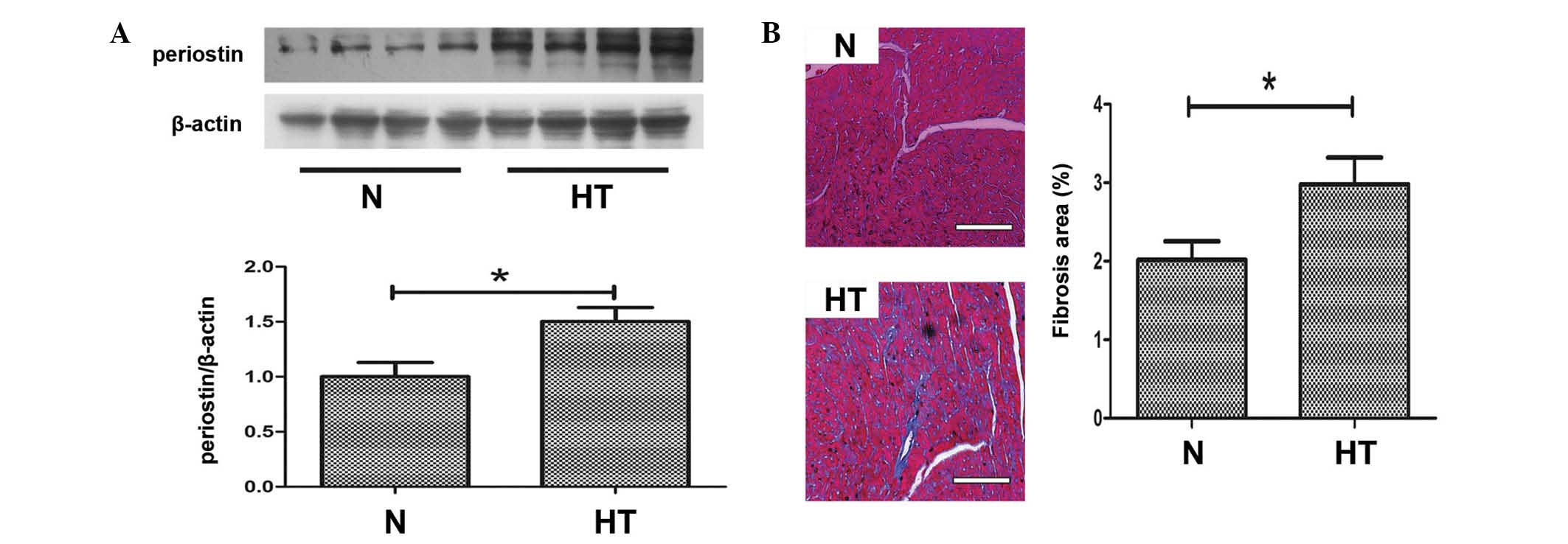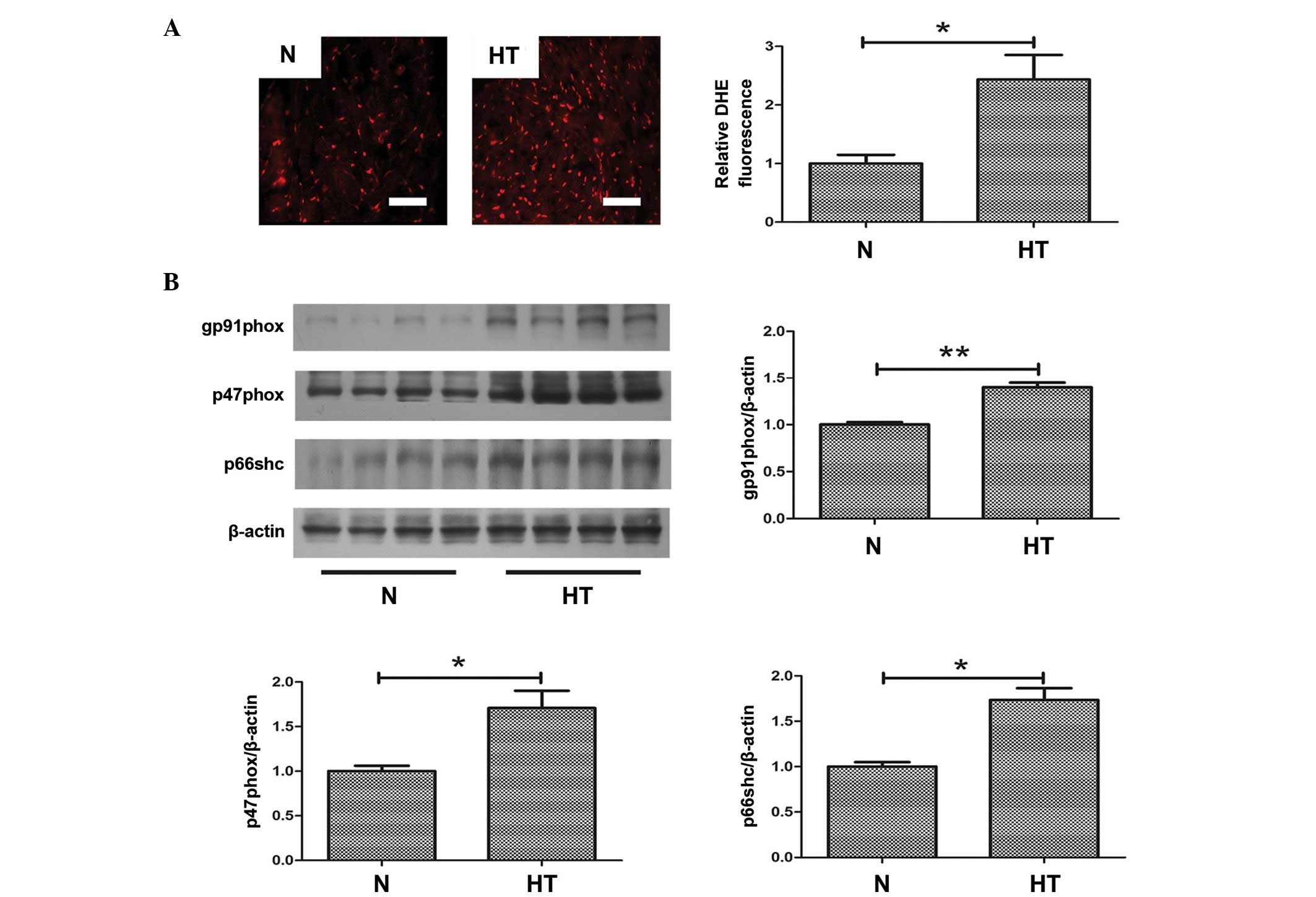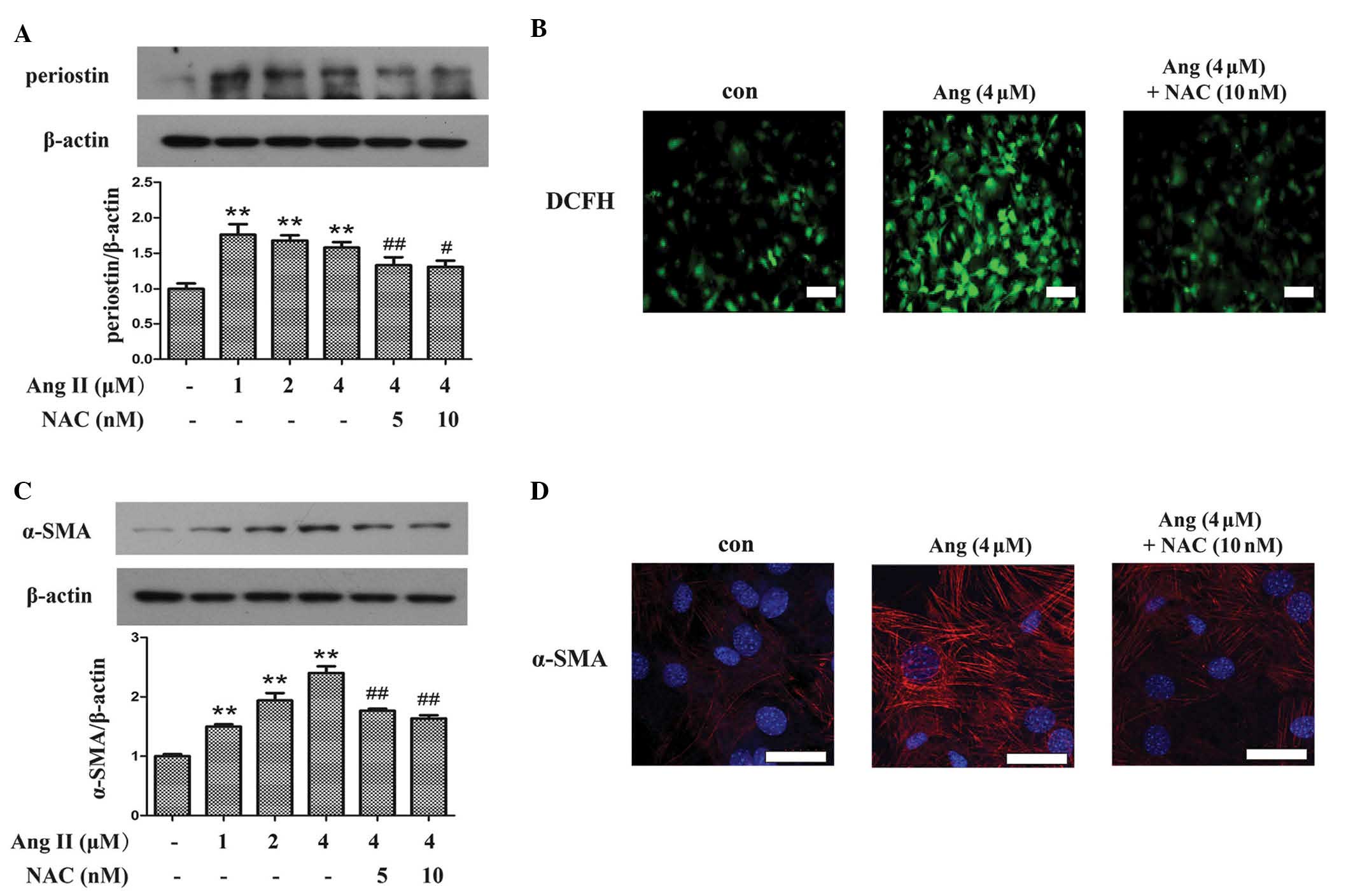|
1
|
Barasch E, Gottdiener JS, Aurigemma G,
Kitzman DW, Han J, Kop WJ and Tracy RP: Association between
elevated fibrosis markers and heart failure in the elderly: The
cardiovascular health study. Circ Heart Fail. 2:303–310. 2009.
View Article : Google Scholar : PubMed/NCBI
|
|
2
|
Kannan A and Janardhanan R: Hypertension
as a risk factor for heart failure. Curr Hypertens Rep. 16:4472014.
View Article : Google Scholar : PubMed/NCBI
|
|
3
|
Volpe M, McKelvie R and Drexler H:
Hypertension as an underlying factor in heart failure with
preserved ejection fraction. J Clin Hypertens (Greenwich).
12:277–283. 2010. View Article : Google Scholar
|
|
4
|
Lapu-Bula R and Ofili E: From hypertension
to heart failure: Role of nitric oxide-mediated endothelial
dysfunction and emerging insights from myocardial contrast
echocardiography. Am J Cardiol. 99:7D–14D. 2007. View Article : Google Scholar : PubMed/NCBI
|
|
5
|
Palaniyandi SS, Inagaki K and Mochly-Rosen
D: Mast cells and epsilonPKC: A role in cardiac remodeling in
hypertension-induced heart failure. J Mol Cell Cardiol. 45:779–786.
2008. View Article : Google Scholar : PubMed/NCBI
|
|
6
|
Mori T, Kai H, Kajimoto H, Koga M, Kudo H,
Takayama N, Yasuoka S, Anegawa T, Kai M and Imaizumi T: Enhanced
cardiac inflammation and fibrosis in ovariectomized hypertensive
rats: A possible mechanism of diastolic dysfunction in
postmenopausal women. Hypertens Res. 34:496–502. 2011. View Article : Google Scholar : PubMed/NCBI
|
|
7
|
Takeshita S, Kikuno R, Tezuka K and Amann
E: Osteoblast-specific factor 2: Cloning of a putative bone
adhesion protein with homology with the insect protein fasciclin I.
Biochem J. 294:271–278. 1993. View Article : Google Scholar : PubMed/NCBI
|
|
8
|
Wallace DP, White C, Savinkova L, Nivens
E, Reif GA, Pinto CS, Raman A, Parnell SC, Conway SJ and Fields TA:
Periostin promotes renal cyst growth and interstitial fibrosis in
polycystic kidney disease. Kidney Int. 85:845–854. 2014. View Article : Google Scholar :
|
|
9
|
Bible E: Polycystic kidney disease:
Periostin is involved in cell proliferation and interstitial
fibrosis in polycystic kidney disease. Nat Rev Nephrol. 10:662014.
View Article : Google Scholar
|
|
10
|
Mael-Ainin M, Abed A, Conway SJ, Dussaule
JC and Chatziantoniou C: Inhibition of periostin expression
protects against the development of renal inflammation and
fibrosis. J Am Soc Nephrol. 25:1724–1736. 2014. View Article : Google Scholar : PubMed/NCBI
|
|
11
|
Naik PK, Bozyk PD, Bentley JK, Popova AP,
Birch CM, Wilke CA, Fry CD, White ES, Sisson TH, Tayob N, et al:
Periostin promotes fibrosis and predicts progression in patients
with idiopathic pulmonary fibrosis. Am J Physiol Lung Cell Mol
Physiol. 303:L1046–L1056. 2012. View Article : Google Scholar : PubMed/NCBI
|
|
12
|
Okamoto M, Hoshino T, Kitasato Y, Sakazaki
Y, Kawayama T, Fujimoto K, Ohshima K, Shiraishi H, Uchida M, Ono J,
et al: Periostin, a matrix protein, is a novel biomarker for
idiopathic interstitial pneumonias. Eur Respir J. 37:1119–1127.
2011. View Article : Google Scholar
|
|
13
|
Liu W, Zi M, Tsui H, Chowdhury SK, Zeef L,
Meng QJ, Travis M, Prehar S, Berry A, Hanley NA, et al: A novel
immunomodulator, FTY-720 reverses existing cardiac hypertrophy and
fibrosis from pressure overload by targeting NFAT (nuclear factor
of activated T-cells) signaling and periostin. Circ Heart Fail.
6:833–844. 2013. View Article : Google Scholar : PubMed/NCBI
|
|
14
|
Zhao S, Wu H, Xia W, Chen X, Zhu S, Zhang
S, Shao Y, Ma W, Yang D and Zhang J: Periostin expression is
upregulated and associated with myocardial fibrosis in human
failing hearts. J Cardiol. 63:373–378. 2014. View Article : Google Scholar
|
|
15
|
Redout EM, van der Toorn A, Zuidwijk MJ,
van de Kolk CW, van Echteld CJ, Musters RJ, van Hardeveld C, Paulus
WJ and Simonides WS: Antioxidant treatment attenuates pulmonary
arterial hypertension-induced heart failure. Am J Physiol Heart
Circ Physiol. 298:H1038–H1047. 2010. View Article : Google Scholar : PubMed/NCBI
|
|
16
|
Worou ME, Belmokhtar K, Bonnet P, Vourc'h
P, Machet MC, Khamis G and Eder V: Hemin decreases cardiac
oxidative stress and fibrosis in a rat model of systemic
hypertension via PI3K/Akt signalling. Cardiovasc Res. 91:320–329.
2011. View Article : Google Scholar : PubMed/NCBI
|
|
17
|
Paravicini TM and Touyz RM: NADPH
oxidases, reactive oxygen species, and hypertension: Clinical
implications and therapeutic possibilities. Diabetes Care. 31(Suppl
2): S170–S180. 2008. View Article : Google Scholar : PubMed/NCBI
|
|
18
|
Bai J, Zhang N, Hua Y, Wang B, Ling L,
Ferro A and Xu B: Metformin inhibits angiotensin II-induced
differentiation of cardiac fibroblasts into myofibroblasts. PLoS
One. 8:e721202013. View Article : Google Scholar : PubMed/NCBI
|
|
19
|
Yamaguchi Y: Periostin in skin tissue and
skin-related diseases. Allergol Int. 63:161–170. 2014. View Article : Google Scholar : PubMed/NCBI
|
|
20
|
Liu AY, Zheng H and Ouyang G: Periostin, a
multifunctional matricellular protein in inflammatory and tumor
microenvironments. Matrix Biol. 37:150–156. 2014. View Article : Google Scholar : PubMed/NCBI
|
|
21
|
Meyer S, van der Meer P, van Deursen VM,
Jaarsma T, van Veldhuisen DJ, van der Wal MH, Hillege HL and Voors
AA: Neurohormonal and clinical sex differences in heart failure.
Eur Heart J. 34:2538–2547. 2013. View Article : Google Scholar : PubMed/NCBI
|
|
22
|
Muñoz-Pacheco P, Ortega-Hernández A,
Caro-Vadillo A, Casanueva-Eliceiry S, Aragoncillo P, Egido J,
Fernández-Cruz A and Gómez-Garre D: Eplerenone enhances
cardioprotective effects of standard heart failure therapy through
matricellular proteins in hypertensive heart failure. J Hypertens.
31:2309–2318; discussion 2319. 2013. View Article : Google Scholar : PubMed/NCBI
|
|
23
|
Elnakish MT, Hassanain HH, Janssen PM,
Angelos MG and Khan M: Emerging role of oxidative stress in
metabolic syndrome and cardiovascular diseases: Important role of
Rac/NADPH oxidase. J Pathol. 231:290–300. 2013. View Article : Google Scholar : PubMed/NCBI
|
|
24
|
Tian N, Moore RS, Phillips WE, Lin L,
Braddy S, Pryor JS, Stockstill RL, Hughson MD and Manning RD Jr:
NADPH oxidase contributes to renal damage and dysfunction in Dahl
salt-sensitive hypertension. Am J Physiol Regul Integr Comp
Physiol. 295:R1858–R1865. 2008. View Article : Google Scholar : PubMed/NCBI
|
|
25
|
Akasaki T, Ohya Y, Kuroda J, Eto K, Abe I,
Sumimoto H and Iida M: Increased expression of gp91phox homologues
of NAD (P)H oxidase in the aortic media during chronic
hypertension: Involvement of the renin-angiotensin system.
Hypertens Res. 29:813–820. 2006. View Article : Google Scholar
|
|
26
|
Lebiedzińska M, Suski J, Duszyński J and
Wieckowski MR: Role of the p66Shc protein in physiological state
and in pathologies. Postepy Biochem. 56:165–173. 2010.In
Polish.
|
|
27
|
Lee SK, Chung JI, Park MS, Joo HK, Lee EJ,
Cho EJ, Park JB, Ryoo S, Irani K and Jeon BH: Apurinic/apyrimidinic
endonuclease 1 inhibits protein kinase C-mediated p66shc
phos-phorylation and vasoconstriction. Cardiovasc Res. 91:502–509.
2011. View Article : Google Scholar : PubMed/NCBI
|
|
28
|
Di Stefano V, Cencioni C, Zaccagnini G,
Magenta A, Capogrossi MC and Martelli F: P66ShcA modulates
oxidative stress and survival of endothelial progenitor cells in
response to high glucose. Cardiovasc Res. 82:421–429. 2009.
View Article : Google Scholar : PubMed/NCBI
|
|
29
|
Camici GG, Sudano I, Noll G, Tanner FC and
Lüscher TF: Molecular pathways of aging and hypertension. Curr Opin
Nephrol Hypertens. 18:134–137. 2009. View Article : Google Scholar : PubMed/NCBI
|
|
30
|
Lin CX, Rhaleb NE, Yang XP, Liao TD,
D'Ambrosio MA and Carretero OA: Prevention of aortic fibrosis by
N-acetyl-seryl-asp artyl-lysyl-proline in angiotensin II-induced
hypertension. Am J Physiol Heart Circ Physiol. 295:H1253–H1261.
2008. View Article : Google Scholar
|
|
31
|
Rizzi E, Guimaraes DA, Ceron CS, Prado CM,
Pinheiro LC, Martins-Oliveira A, Gerlach RF and Tanus-Santos JE:
β1-Adrenergic blockers exert antioxidant effects, reduce matrix
metalloproteinase activity, and improve renovascular
hypertension-induced cardiac hypertrophy. Free Radic Biol Med.
73:308–317. 2014. View Article : Google Scholar : PubMed/NCBI
|
|
32
|
Chen X, Mori T, Guo Q, Hu C, Ohsaki Y,
Yoneki Y, Zhu W, Jiang Y, Endo S, Nakayama K, et al: Carbonyl
stress induces hypertension and cardio-renal vascular injury in
Dahl salt-sensitive rats. Hypertens Res. 36:361–367. 2013.
View Article : Google Scholar : PubMed/NCBI
|
|
33
|
Chaykovska L, Alter ML, von Websky K,
Hohmann M, Tsuprykov O, Reichetzeder C, Kutil B, Kraft R, Klein T
and Hocher B: Effects of telmisartan and linagliptin when used in
combination on blood pressure and oxidative stress in rats with
2-kidney-1-clip hypertension. J Hypertens. 31:2290–2298; discussion
2299. 2013. View Article : Google Scholar : PubMed/NCBI
|
|
34
|
Xu J, Carretero OA, Liao TD, Peng H,
Shesely EG, Xu J, Liu TS, Yang JJ, Reudelhuber TL and Yang XP:
Local angiotensin II aggravates cardiac remodeling in hypertension.
Am J Physiol Heart Circ Physiol. 299:H1328–H1338. 2010. View Article : Google Scholar : PubMed/NCBI
|
|
35
|
Yamada Y, Tsuboi K, Hattori T, Murase T,
Ohtake M, Furukawa M, Ueyama J, Nishiyama A, Murohara T and Nagata
K: Mechanism underlying the efficacy of combination therapy with
losartan and hydrochlorothiazide in rats with salt-sensitive
hypertension. Hypertens Res. 34:809–816. 2011. View Article : Google Scholar : PubMed/NCBI
|
|
36
|
Leask A: Potential therapeutic targets for
cardiac fibrosis: TGFbeta, angiotensin, endothelin, CCN2 and PDGF,
partners in fibroblast activation. Circ Res. 106:1675–1680. 2010.
View Article : Google Scholar : PubMed/NCBI
|


















